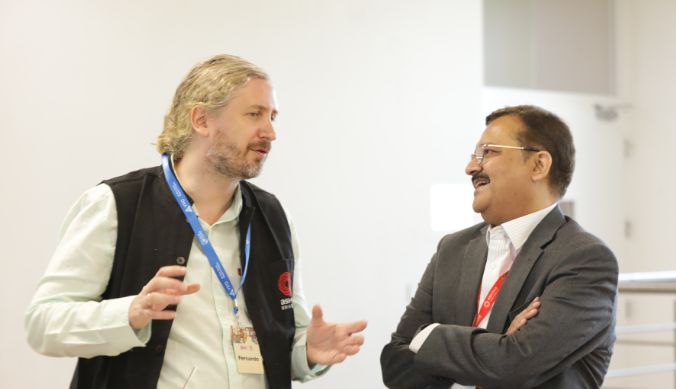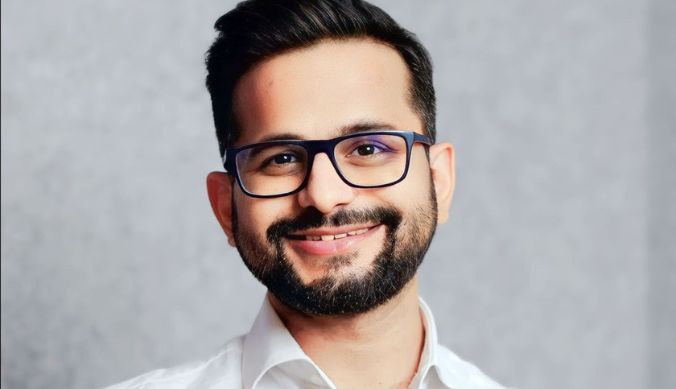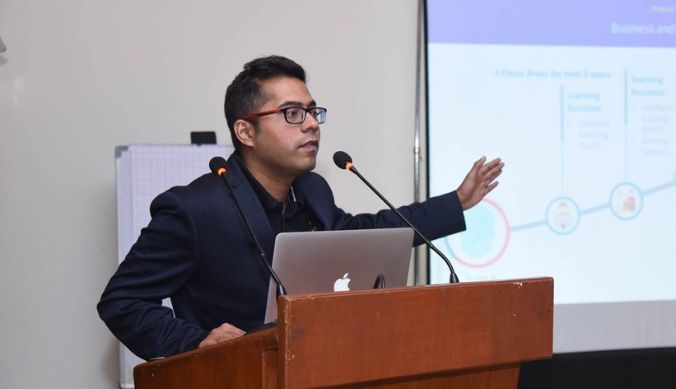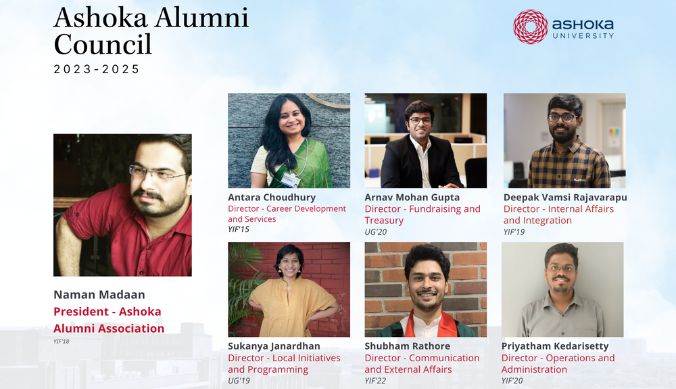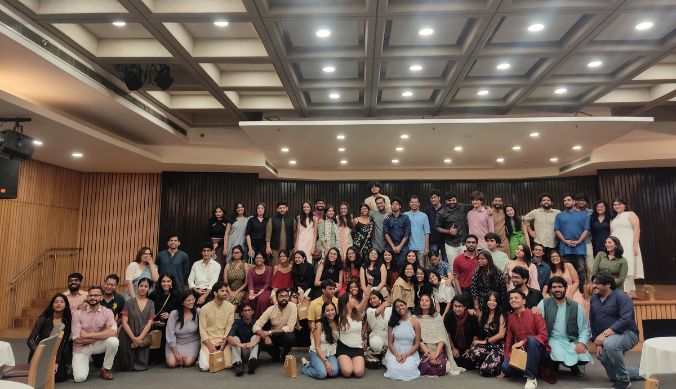How three villages in Haryana got access to books
Concerned about the rural population’s lack of access to reading and learning, the Shanghvi Library at Ashoka has introduced a mobile library that operates in the villages of Haryana.

Office of PR & Communications
30 June, 2017 | 5 min readBy Garima Nijhawan, Vedica Scholar 2017-19
June, 2017: “Until now, not many people in my village had seen a computer or a laptop,” said Praveen Kashyap, a 20-year-old from Jajal Toki, a village in Haryana. He recently assisted the setting up of a Mobile Library that operates in villages of Haryana. Along with help from Praveen, Ashoka University, a liberal arts university based in Rai, Sonepat, orchestrated the mobile library, which conducts educational sessions for children of his village. Praveen helped in the process by providing infrastructure and mobilizing people to his own courtyard for open library sessions, which were conducted through tablets and laptops.
He says that the tablets and laptops through which the sessions were conducted proved to be really intriguing to children of his village. “Children and their parents are really looking forward to more sessions of Computer Education, storytelling and learning through educational toys that were provided by the mobile library.”
Although the learning and reading methods have been fuelled by mobile technologies, smart education methods haven’t disseminated into every village. The benefits of digitalisation and technological advancements are yet to percolate evenly in the education sector in rural India, hence, affecting the learning and holistic development of children of rural India.
Concerned about the rural population’s lack of access to reading and learning, Dr. Rangashri Kishore, Director of Library services at Ashoka University proposed the idea of the Mobile Library that conducted open library sessions for Jajal Toki. “The idea was to reach out to the children whose parents work in the agricultural fields”, says Dr. Rangashri. “In such a scenario, we felt that a mobile library fitted with e-reader technology as well as physical books can ensure that they receive the complete library experience in order to educate them in a rapidly changing world.” Digitalisation is a unique model that helped them reach a large number of kids as they were facing limitations of taking more books in the car, getting more student volunteers to participate and taking volunteers along was also a challenge.
Building branch libraries involve a lot of time, infrastructure, resources, and money. It is even more difficult to build a library in rural areas as brick and mortar libraries need regular support and resources from its patrons, which can’t be expected in every village area. In India, there are 54,856 public libraries (Survey Report ORG-MARG) starting from English Colony Library at Chennai in 1661. As stated on the website of National Mission on Libraries, an initiative started by Ministry of Culture, Govt. of India, there is no authentic survey over their growth and decay. Most of these public libraries were managed by voluntary organizations, and did not continue long due to lack of adequate financial support from the public. Presumably, almost 50% of such public libraries started by the voluntary organization would close down after a period. Only those public libraries which are supported by public library legislation or State Government, through continuous grant-in-aid, are functioning.
In villages, there aren’t many people who have reading habits. A library is a luxury when there’s struggle for even basic necessities such as electricity, roads, and water. There are concerns about rural connectivity, poor legislative backup, changing requirements of library users, inconsistent incomes of people and social tensions.
The Shanghvi Library at Ashoka introduced a mobile library sponsored by the Small Steps Foundation (USA). The library took donated books and toys to conduct open library sessions in three villages, Asavapur, Sevli and Jajaltoki and will be carrying it forward in other villages. On Children’s day in 2016, children of these villages were engaged in a programme, in which the mobile library’s space was used to conduct storytelling sessions, show learning videos and help them to play with educational toys. The van is fitted with a 52″ television and shelves with 10 digital tablets provided by World Reader, an International NGO providing culturally relevant e-books called ‘Read to kids’.

They have also partnered with Society for All Round Development (SARD), who is helping in conducting training and capacity building programme for student volunteers and staff. Sudhir Bhatnagar, Chief Executive, SARD, says, “We wanted to use technology, we wanted to give to parent community, school teachers, and the local health service providers so that they can access quality books on their mobiles.”
Through apps and tablets, they are bringing 40,000 open library books and more than 400 quality children’s content. We need more of these initiatives to empower people with less advantaged backgrounds to be well read and abreast with all the technological advancements relevant to their work field. Promoting the use of libraries as important sources of information will aid in curriculum delivery. It will not only improve literacy levels of rural children who have no access to books but will also enable them to benefit from extracurricular activities, which are essential for their learning and development.









